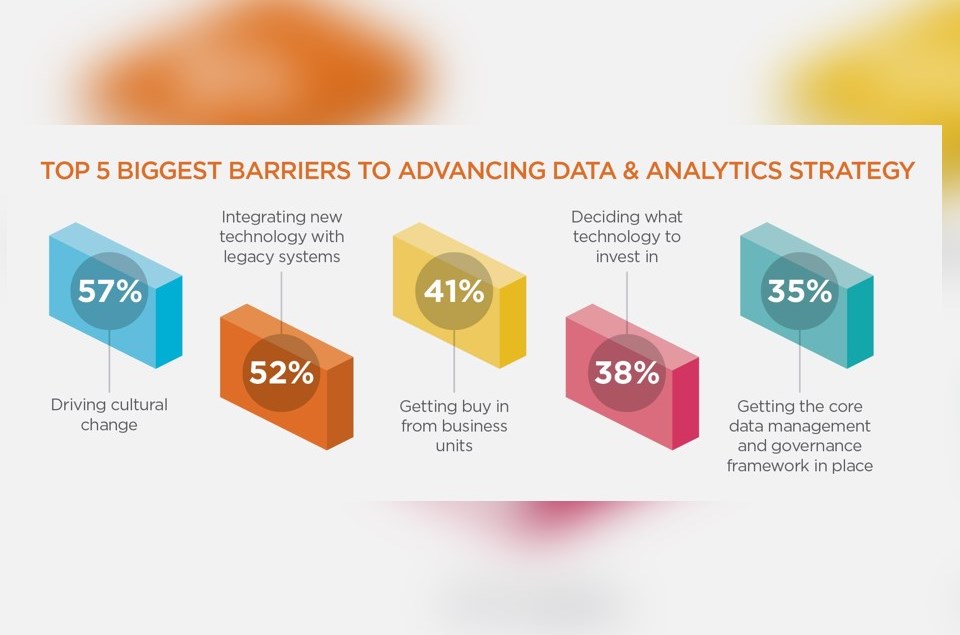Pierre-Johan Bezuidenhout was one of the first Chief Data Officers in South Africa and moved into the role in a time when there was very little information on the CDO – what their role should be and where they should sit in the organisation.
Corinium spent some time with PJ in London recently whilst he was attending our CDO Europe event. We wanted to get some insight into PJ’s thoughts on the role, the challenges he’s facing and the opportunities he sees.
Corinium: PJ, in your own words, what your are current thoughts on the role the CDO plays in organisations?
PJ: The Chief Data Officer role is new to our organisation (Wesbank), new to the industry, to South Africa and even internationally…10 years ago this role did not exist.
This infancy and immaturity brings its own challenges.
There has been so much written about the role and if you type “Chief Data Officer” into Google you get over 7.5m search results.
So, where does one start? Can you develop a few case studies and start disseminating your ideas and vision into a well established model?
Being the organisation’s CDO means everything closely related to data is your problem and responsibility. It is important to formulate your mandate with the business and play within these boundaries predominantly. This makes you keep focus on what is important and agreed. Because so many new CDO roles are being incorporated into organisational structures everyone is writing their own job profile. Its therefore important to have support right from the top and a clear vision and strategy that can be communicated to the whole business.
There are two key areas I focus on:
1. Ownership
Start with what is working in the organisation. Do you have an Information Governance Council with some skin you can leverage off? If not, create one. Do you know your stakeholders? VIew the business as your customers in their own right. Start identifying individuals in business who care the most. They will be your biggest support in times when budgets are tight. With the right support and business owning their data problems it makes execution easier.
2. Funding
With ownership comes responsibility and ownership must sit with business. The CDO role should highlight the areas of improvement, produce roadmaps in how those can be achieved and then find the budget to execute on those plans. Not always as simple as it may sound. Business is complex, changing culture is not easy. Starting small is definitely the key. Show value in small increments and build value, and funding, over time.
Corinium: Are these challenges specific only to banks and financial institutions or do you think these are common industry challenges?
PJ: Having had interactions with other CDOs here in London one can make a broad statement that most CDOs are struggling with similar challenges in their respective industries. There is however a sense that the Financial Services Industry is more regulated than most other industries which puts larger focus on CDOs in respect to compliance and regulations. This has meant that the adoption of the role has been accelerated because adherence to these regulations is underpinned by strong data governance and management.
Corinium: In your short time in the role have you found any quick wins?
PJ: Yes and no, and the reason for saying this is that execution takes time in this role. We are working in large corporations, they are complex and data sits everywhere. Formulating plans and communicating them to all your business owners takes a lot of time and effort. Businesses are federated, on different maturity levels and have other priorities like sales and marketing, budgets, people and resource management to name a few to deal with too. It is important to break the businesses up into components. Start with the unit who has bought into your plans and where there is support from the top. Get the Data Steward role embedded into the business and show them the end goal. That end paradigm will make their lives easier if you can put efforts into areas that impact their value chain.
Corinium: What are your short term priorities within the business?
PJ: Business strategies are changing over time and its important to understand that change. Data, as a strategic asset to the organisation, should be a key component to this change. Our focus over the next six months will be to create awareness in the business on the importance of data in all operational activities. We are putting the foundations together towards a data-driven enterprise and ultimately an analytics-driven enterprise. Short term priorities will lead into longer term objectives.
Corinium: What is your vision and mission for the Chief Data Office at Wesbank?
PJ: The Wesbank Chief Data Office must become the single trusted source of aggregated information within the organisation for enterprise-wide decision making.
Join us at the Chief Data & Analytics Officer Africa happening on July 3-5, 2017 in Johannesburg, South Africa. For more information, visit http://www.coriniumintelligence.com/chiefdatanalyticsofficerafrica









